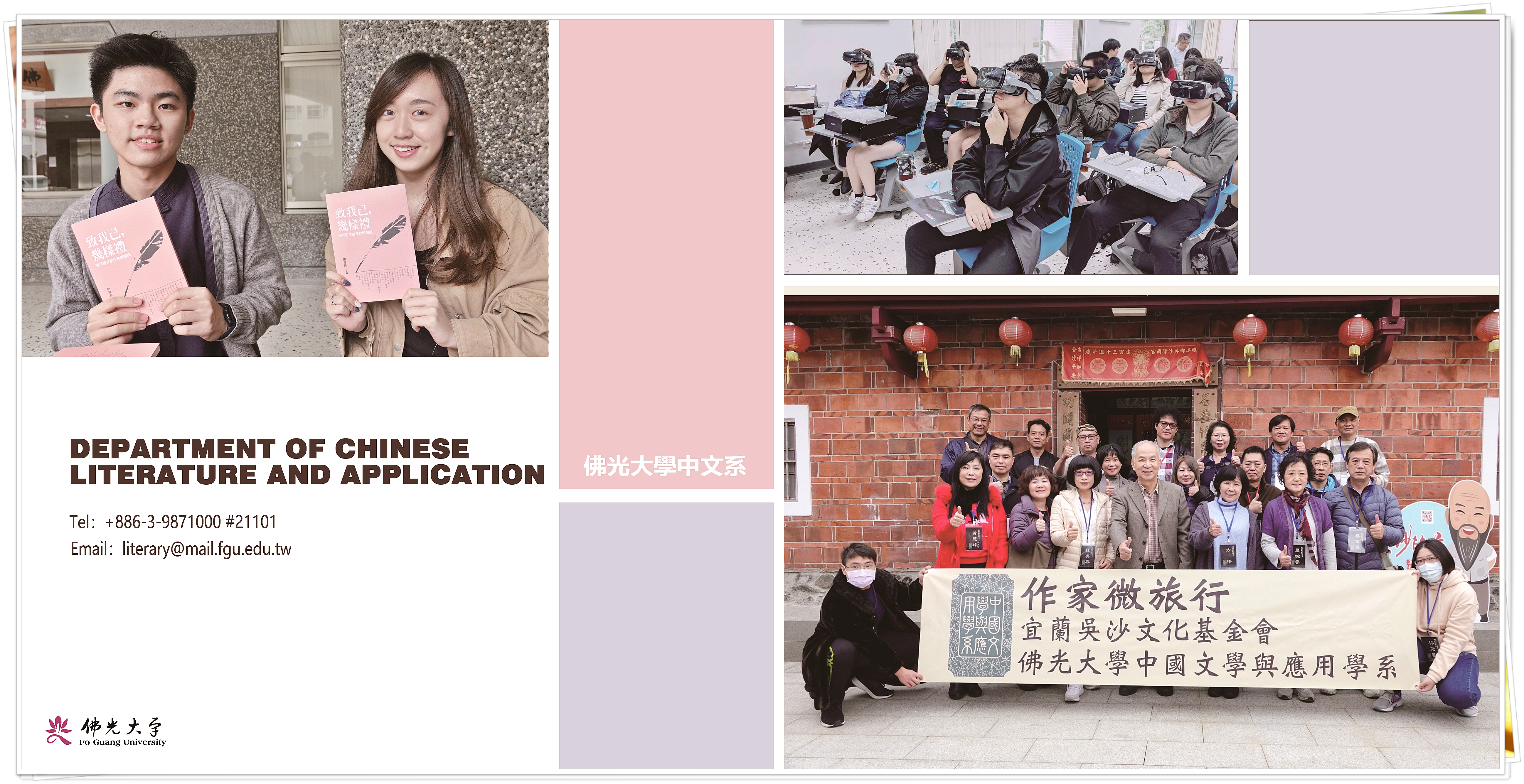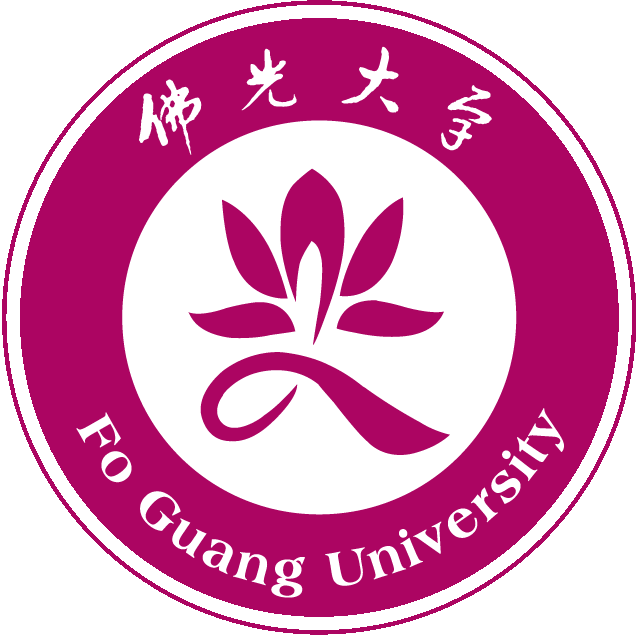View count:
25466
Department of Chinese Literature and Application
The Department of Chinese Literature and Application is one of the earliest departments when Fo Guang University was founded in 2000. The original name was the Department of Literature. It recruited master students at the beginning and doctoral students in the second academic year. From the third year, the department began to offer bachelor's courses. In 2012, the department changed the name according to a new direction for literature education. So far, the department has become an important academic unit for Chinese literature research and teaching in east Taiwan.The goal of Fo Guang University is to develop students’ abilities for their future careers, especially practical skills. From 2012, the school launched curriculum reform. Based on it, the department planned one core course and two elective professional courses. Then in 2021, the school renewed the curriculum, and the department courses were adjusted to one core program and one elective professional program. The requirement for graduation is 128 credits, which could include one program of other departments. New programs aim to provide students with professional knowledge, interdisciplinary learning and practical application space.
New courses will focus on language skills, literary creation, cultural innovation, digital humanities, industry-university links and so on. Through different course and activity designing, experts from academic or industrial fields are often invited to share experiences with students. It may consist of speeches, forums, lectures, workshops and so on. In addition, the department continues to do projects such as Deep Cultivation for Higher Education Project, Innovative Curriculum Development Project, Teaching and Practice Project, Industry-University Cooperation Project and so on.
With a clear goal and above practices, the department expects to improve efficiency of teaching and training, to integrate teaching resources, to provide students with liberty and diversity, to help students developing self-guidance, self-learning, professions and specialization, and to meet industrial and social needs.

-
Tel:+886-3-9871000 #21101
-
E-mail:literary@mail.fgu.edu.tw


